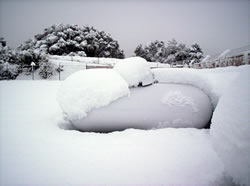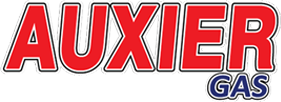Blog
Winter Bulletin 2017

Staying comfortable and safe during the winter is as easy as planning ahead. Please familiarize yourself and the members of your family with this cold weather preparation checklist, which is provided by the Propane Education & Research Council.
Maintain an adequate supply of propane in your tank. Call Auxier Gas when your propane tank percentage is at 30%. A severe storm can hinder additional propane deliveries.
Use energy wisely. Winter storms and the resulting inaccessible roads may make propane deliveries difficult (even impossible) for several days. Use energy conservatively by setting your programmable thermostat to as low as is comfortable—possibly a few degrees cooler at night and when nobody is home. Close off any rooms that don’t need to be heated.
Keep the path to your propane tank clear. A clear path helps our drivers get to your tank easily, fill it quickly, and move on to our next valued customer.
Allow your appliances to vent properly. If it is safe to do so, clear snow and ice away from outdoor vents, chimneys, and flues to prevent blocking any ventilation.
Clear snow and ice from around your propane tank. This includes regulators, regulator vents, piping, tubing, and valves. Use a broom instead of a shovel to prevent damage to your propane system components.
If you smell gas, take the right steps. Immediately put out all smoking materials and other open flames. Do not operate lights, appliances, telephones, or mobile phones. Get everyone away from the home or area where you suspect gas is leaking. If safe to do so, close or shut off the main gas supply valve by turning it to the right (clockwise). Call us immediately from a safe place to report the leak. If you cannot reach us, call 911. Do not return to the area until a qualified technician or emergency responder gives the OK.
Never use a stove or bring your gas grill indoors for space heating, even during a power outage. Only use appliances indoors if they are approved for that purpose. Never store, place, or use a propane cylinder indoors or in enclosed areas. Without proper ventilation, deadly carbon monoxide (CO) fumes produced can build up.
Operate portable generators with caution. Never use a portable generator (gasoline, diesel, or propane) indoors or in enclosed areas. Doing so can result in carbon monoxide (CO) poisoning or death.
